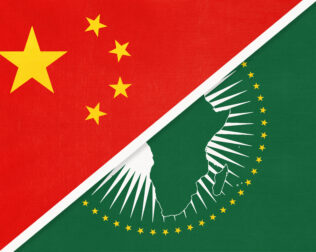By Ariane Gottlieb and Justin Daniels
“We are breaking all our political contacts with China due to the threats that the Chinese embassy has directed against the Swedish government,” said the mayor of Linköping in 2020, tearing up a sister-city agreement with Guangzhou. Mayors across Sweden followed suit, severing ties after Beijing’s belligerent rhetorical defense of its decision to detain Hong Kong bookseller (and Swedish citizen) Gui Minhai. Beijing’s repressive governance at home and assertive stance toward local officials abroad have spurred similar calls to sever sister-city ties across many democracies.
Yet as recently as a few years ago, officials in many democratic systems were eager to establish ties with People’s Republic of China (PRC) municipalities to expand opportunities in business, tourism, culture, and education. In 2015, the Chicago mayor’s office pledged to make the city “the gateway to the U.S. for Chinese companies.”
Now many municipalities are pulling up the drawbridge, judging that the risks of formalized sister-city (a.k.a. twin-city) ties with China outweigh the rewards. Despite their potential economic and cultural benefits, these partnerships can also be vectors of Beijing’s increasingly aggressive efforts to limit international criticism of its autocratic rule, advance its geopolitical agenda, and even export technology embedded with its authoritarian values. As such, these partnerships (whose full terms are often not public) have become another example of Beijing’s full-spectrum sharp power influence abroad.
The Origins of China’s Sister-City Partnerships
The PRC has always viewed sister-city pairs as useful tools for advancing its foreign policy aims. During its “reform and opening up” period beginning in the late 1970s, the Chinese Communist Party (CCP) leveraged these partnerships to further its technological development and encourage foreign investment. In October 1980, the PRC selected San Francisco as one of its first sister-city partnerships. According to a government statement celebrating China’s first twinning agreements in the 1990s, Beijing sent delegations to establish new sister cities in Western Europe, Asia, and the Americas, leading to billions of dollars in foreign investment opportunities from these locales into China.
As the PRC further sought to grow its international exports and burnish its global reputation, cities around the world were eager to form partnerships with the party-state. For instance, a Melbourne City Council official argued that his city’s twinning agreement with Tianjin “gives us tremendous standing, not only in Tianjin, but across all of China… We’ve really cemented that friendship through very substantive programmes,” spanning culture and business exchanges as well as a Melbourne economic office in Tianjin. The number of China’s sister-city agreement increased rapidly. The first partnership was established between Beijing and Tokyo in 1979; by 2019, roughly 2,600 Chinese municipalities had foreign sister cities or provinces, including about 200 in the United States and 700 in Europe.
Vectors of Authoritarian Influence
Although municipal officials around the world view their sister-city ties with Chinese municipalities as strictly local affairs, these agreements are coordinated with the national government in Beijing through the Chinese People’s Association for Friendship with Foreign Countries (CPCAFFC). CPCAFFC has been heavily documented as part of the CCP’s united front activities, which is the Party’s effort to spread its propaganda and advance its geopolitical aims domestically and globally by recruiting “foreign friends” and allies through the Chinese diaspora.
For instance, when the city of Liyang was allowed to seek a U.S. sister city in 2014, an American firm called “Success International Mutual Liaison Services” was hired to locate a suitable match. The firm’s owner, Jun Han, had ties to CPAFFC-linked Chinese government officials. She selected the city of Columbia, Maryland in part due to the civically active Chinese-American community there. Even though Jun told the city’s sister-city committee that there would be a “separation” between the two cities’ relationship given the “political realities” of the U.S.-China relationship, Columbia officials were still required to sign a statement affirming their city’s support for China’s version of the “One China” policy concerning Taiwan.
United Front activities have grown more assertive in every aspect of the PRC’s interactions abroad—especially under Xi Jinping. Sister-city relations are no exception. Once hailed as symbols of cooperation, economic development, and cultural understanding, China’s sister-city pairs have now also served as vehicles for coercion, self-censorship, and elite cooptation abroad.
The CCP often expects sister cities to acquiesce to its foreign policy objectives and propaganda, jeopardizing the latter’s autonomy and free speech. In 2019, tension emerged between the Czech Republic and the PRC after the mayor of Prague tried to remove a clause from its sister-city agreement with Beijing which affirmed that Prague “…confirms its continuous commitment to the One China Policy of the Government of the Czech Republic, and acknowledges that Taiwan is an inalienable part of Chinese territory.” The PRC did not comply with this request, prompting officials in both Prague and Beijing to terminate the agreement. Prague subsequently established a sister-city agreement with Taipei, which prompted Shanghai to end its own separate partnership with the Czech capital. Elsewhere, in the Australian city of Rockhampton, sister city to Zhenjiang, the PRC vice consul convinced Rockhampton officials to paint over a portion of a local children’s art project portraying Taiwan’s flag. In justifying this decision, the Rockhampton mayor asserted that the painting violated Australia’s One China Policy.
Beijing has used the relationships bred by sister-city agreements to develop opportunities for technology cooperation. This, however, raises the risk of implanting invasive, AI-driven surveillance systems that might undermine democratic models of governance. The United Kingdom’s Government Office for Science explained that sister-city relationships can lay the groundwork for smart city partnerships. As outlined in a report by the International Forum, smart cities can amplify authoritarian influence, undermine good governance, and threaten privacy rights. One city in Australia leveraged links from a sister-city partnership to collaborate on surveillance tools inspired by Beijing’s controversial social credit system. Critics noted that this system could grant Australian government actors expanded and insufficiently regulated access to citizen data, potentially enabling the abuse of digital surveillance tools. Alternatively, officials from Palo Alto, California built upon an existing smart-city partnership agreement with Yangpu District, Shanghai to create a sister-city agreement, demonstrating how the establishment of smart-city and sister-city partnerships can be mutually reinforcing.
While twinning relationships are supposed to promote mutually beneficial cooperation, gains for those partnering with Chinese cities have been underwhelming in some instances. Although China-U.K. partnerships were generally driven by business interests, the U.K. government assessed that the agreements were “unable to meet their economic aims” as of 2016 (with more substantial gains for cultural and educational engagement being identified). While government analysts concluded that this trajectory might shift over time, this would likely be conditional upon the growth of “trust and reciprocity” in alternative domains such as culture and education—two key targets of CCP sharp power operations. Given the CCP’s manipulation of sister cities for political ends, these developments illustrate a broader trend: while the CCP derives geopolitical benefit from such forms of economic engagement, gains can be relatively limited for China’s partners.
Souring on Sister Cities
Given the risks and shortfalls of twinning partnerships with China, multiple cities have pushed back against these agreements. The aforementioned disputes between Prague and Beijing, and the Czech capital’s subsequent decision to establish a partnership with Taipei, stands out as one of the most well-known examples. Similar trends have emerged elsewhere amid a deterioration in ties between China and the U.S. and EU, as well as declining perceptions of the PRC in those settings. Sweden has terminated or paused over half of its 49 sister-city relationships with China since 2017 due to a decline in activity or collaboration and weakening national ties. Moreover, cities in the U.K. and the Netherlands have terminated partnerships with China, citing the PRC’s human rights record, among other reasons. Two hundred cities also endorsed the “Global Declaration of Mayors for Democracy,” affirming their interest in countering authoritarian influence as well as deepening and sustaining democratic principles. At the national level, U.S. Senate and House Republicans co-introduced the “Sister City Transparency Act,” which calls for greater scrutiny of twinning partnerships with countries that experience high levels of corruption in the public sector, such as the PRC and Russia.
While these measures are positive first steps, democracies must develop a broader strategic approach to sister-city partnerships with the PRC. Rather than individual municipalities acting on an ad hoc basis, cities and countries must outline unified responses and conceptualize sister-city models which account for democracy and human rights concerns. Democracy practitioners must push for comprehensive data and greater transparency so these partnerships can be scrutinized effectively. Addressing knowledge gaps among city and local officials as to associated risks will be a crucial component of any subnational response. Private sector entities should similarly understand how the CCP uses asymmetric economic exchange to garner subnational influence; thus, businesses should conduct due diligence when cultivating partnerships.
Democracies must view sister-city relationships in the context of China’s sharp power toolkit and articulate a whole-of-society approach which leverages the advantages of pluralist societies, such as openness and transparency. The international community must push for forms of engagement that safeguard democracy and human rights, or risk witnessing the erosion of democratic norms and values at the subnational level.
Ariane Gottlieb is an assistant program officer at the National Endowment for Democracy’s International Forum for Democratic Studies, and Justin Daniels is assistant editor of the Journal of Democracy. Follow his Twitter at @JustinMDaniels.
The views expressed in this post represent the opinions and analysis of the author and do not necessarily reflect those of the National Endowment for Democracy or its staff. Image Credit: William Barton/Shutterstock.






